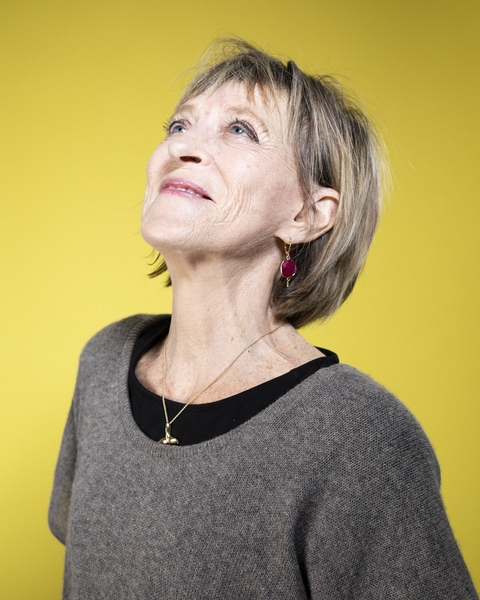“Only those in whom youth has not entirely died are capable of speaking of old age,” writes Benoite Groult; this makes MIT Professor Emerita Isabelle de Courtivron eminently qualified to write on the subject. A professor of French literature, former head of Foreign Languages and Literatures (now Global Languages), and director of women’s studies before her retirement, De Courtivron’s latest book, “L'Eté où je suis devenue vieille” (“The Summer When I Became Old”), is forthcoming from L’iconoclaste later this month. The memoir takes on the rarely-discussed subject of aging for women, and De Courtivron tells her tale with “rare sincerity tinged with humor.” The book has been called “brilliant” and “provocative.” Professor Emma Teng, director of Global Languages, caught up recently with de Courtivron to discuss.
Q: What inspired you to write this book?
A: I took early retirement from MIT 10 years ago, and decided to go live in Paris in order to fully enjoy its numerous cultural events and return to a country where art and pleasure were still essential values. Also, I wanted to travel around the world to see all of the magical places that I had not had the time to visit.
This I did for 10 years. I spent my 70th birthday with friends on Easter Island.
Then my body and my mind began to let me know that I was on the cusp of getting old. This was a total shock, in part because I had never really thought about it before, and because it threatened a life dedicated to independence, freedom from social restraints, nonconformity, and being unafraid to take risks. When this happened, I began the hard work of thinking differently about my past, and about significant topics such as family, friendship, love, literature, career, feminism, technology. I also tried to express my difficulties in facing a world that had changed so drastically since I was young. A world in which I now felt increasingly invisible and inaudible — especially as a woman.
Q: You have written extensively on the differences between feminism in the United States and in France. Are there any gendered differences in these two countries when it comes to the experience of aging?
A: It is risky to generalize, but clearly the concepts of “femininity” and “masculinity” are quite different in every country, and each has been determined by centuries of culture and history. In an article I wrote in 2000 about the middle years in women’s memoirs, where I tried to make a comparison based on my readings, I concluded that “French women tend to wax poetic, fatalistic and serene; Anglo-Saxon women tend to wax angry, energetic and political.” I now think this has in some ways remained the same, at least for my generation, but is also changing for young women today. After years of rejecting feminism as a threatening American import leading to the dangerous separatism of the sexes, I have been happily surprised by the new fourth wave of feminism occurring in France during the past five years or so. Young women are now vigorously and increasingly affirming and broadening the values, demands, and vision that my friends and I espoused when we were their age, and that clearly receded in the ’80s and ’90s. So, while the two cultures today still could not be more dissimilar, I think that this will be less the case in the future, at least as far as feminist consciousness.
Q: You have always loved teaching, and students have kept you young at heart. What inspiration have you drawn from students?
A: Despite some of the bumpy rides I experienced over my teaching career, I am grateful to the Institute for the freedom I was granted to move from teaching French literature, to teaching women’s studies, to moving into translingual and transcultural studies during my 30 years at MIT. I was never bored, and the challenge of getting MIT students to talk, read, debate, and write outside of their comfort zone was always rewarding. The last third of my teaching life made me acutely aware of the diversity of young people on campus and of the difficulties they confront in being immigrants or hybrid in any way. Soon, there were no more awkward silences in classes, as students from all over the world read, discussed, and wrote about the vexing issues of language and relationships to previous generations, and about the painful questioning of identity. This was immensely rewarding because these revelations often led them to new directions and a new understanding of self and others. This, I believe, was always my mission in teaching in the humanities, where questions are often more fruitful than answers and thus central to any undergraduate education.










